8 years ago by
Unless you’ve been living under a rock (let’s face it, I kind of feel like I have been for the last few months!) it’s safe to say that you’ve become familiar with the trend of natural beauty. There are a ton of brands out there claiming that their products are all-natural, or organic, and that they’re safer for us than the old toxic stuff of days past. And then there are the brands we’ve all known and loved forever, who are launching their version of natural products. I feel like everything that I’m putting on my face, hair, body these days has been dug up by a farmer in a beautiful field somewhere. But is it true?
All to say, things have gotten really confusing, and we wanted to try to get to the bottom of this big shift. So we asked a few experts in the beauty business to answer some of our questions about what “natural” or “organic” or “non-toxic” beauty really is, and if it’s even good for us? And if the non-natural stuff is really that bad? We spoke with Jayme Cyk, the Beauty Director of Violet Grey; Angelina Umansky, who is the co-founder of Spa Radiance; Marie Veronique Nadeau, the founder and formulator of Marie Veronique, her eponymous skincare brand; and Lucy Vincent Marr, the founder of sans [ceuticals] to ask them a few questions about this movement. We’re just scratching the surface here, so let us know what other questions you have for these women and we can keep this conversation going!
What is your take on the “organic” or “all natural” influx in beauty?
Jayme: I should start by saying that green, non-toxic, safe, clean, and natural mean nothing and are not cleared by the FDA. I use both types of products labeled and not-labeled all natural, but it comes down to efficacy. If I’m interested in a product and someone mentions that it’s natural, then it needs to have a story I can connect with and ingredients that are both innovative and backed by science.
Angelina: It’s all marketing language. There are no clearly defined terms which means the same product could be called natural, organic, clean, nontoxic, etc. The labels are useless.
Marie Veronique: Define your terms everyone, please. In chemistry “organic” means a molecule that contains a carbon. By that definition parabens are organic, but obviously that is not the intended meaning in the skin care context. Organic as it is meant in the beauty industry is probably a rough translation of the word biologique—meaning it has its origins in living matter. All-natural is maddeningly vague—does it mean from nature? Does this include compounds synthesized in the lab that exactly match those that occur in nature, e.g. l-ascorbic acid? My take on the terminology influx is that while scientists tend to use these terms cautiously (if they use them at all, given the varying interpretations possible) they are at odds with the companies who use messaging and marketing gimmicks to mislead rather than enlighten. Everyone ends up confused and frustrated.
How do you differentiate the good from the bad?
Jayme: As a beauty editor, I try my best to familiarize myself with ingredients. I’m a big fan of niche brands and small batch skincare, but besides understanding their ingredients, for me, it’s also about asking how they maintain the quality of their products. Some ingredients in the natural space can be super active so at the end of the day, not all rosehip or marula oil is created equal.
Marie Veronique: Works=good
Works + safe=very good
Doesn’t work=bad
Doesn’t work – safe=very bad
Lucy: The Skin Deep website is an excellent resource for sound, well researched information on cosmetic ingredients.
What are some of the most beneficial “good” ingredients – and why?
Jayme: That’s a loaded question because not all “good” ingredients work for everyone. One of my favorite ingredients is hyaluronic acid because it instantly hydrates and plumps. I’m a big fan of niacinamide because of the brightening effects and because it’s great for sensitive skin. Blue tansy is also a fantastic ingredient of mine. It hydrates and calms (the blend contains a natural antihistamine), but also puts its user into a deep state of relaxation thanks to its aromatherapeutic herbaceous scent.
Angelina: I don’t like to look at singular ingredients because what if you take three amazing ingredients on their own, but when you combine them they become something volatile?
Marie Veronique: Retinol is number one. The retinoid that is synthesized in the lab that converts to retinoic acid has studies dating back decades to show it reverses photoaging damage and alleviates acneic conditions. It is not to be confused with the “all-natural retinol” found in oil blends by the way. All-natural retinol in this case refers to the Vitamin A content in oil blends, most of which is beta carotene. There is no retinol here that converts to the retinoic acid that affects actual skin improvement.
Lucy: Fundamentally, when it comes to skincare, the top line, beneficial ingredients are water and lipids. It is also important to make sure that these lipids are bio available (a term used to describe an ingredients’ ability to penetrate the epidermal layers of the skin to deliver vital nutrients and support to the dermis as this is where regeneration and activity happens.).
What are the ingredients we should absolutely avoid?
Lucy: Parabens, phthalates and sulfates. It is also worthwhile mentioning that the problem is not actually the sulfate itself, but the contamination from the manufacturing methods used to make this product.
Jayme: There are the usual suspects: parabens, phthalates, and sodium lauryl and laureth sulfate, which all lead to skin irritation and a few have been linked to cancer and endocrine disruption. Personally, I am not a fan of added fragrance and I find it to be a major skin irritant. Not everyone reacts to it, but if you have any sort of sensitivity, I would stay away from it. Mineral oil is also a well-known skin irritant, especially for those who are acne prone.
Marie Veronique: There are lists of ingredients to avoid on websites like EWG that are helpful. Take them with a grain of sodium chloride however. Two ingredients yet to make everyone’s list are the preservatives phenoxyethanol and phenethyl alcohol–both may cause irritation, even in small doses.
What are some ingredients that look “bad” but aren’t anything to be scared of?
Jayme: While all of this is up for debate, I should start by saying that toxicity is dose-dependent. But ultimately synthetics aren’t anything to be afraid of. But still, study each synthetic ingredient and make sure it makes sense for what you’re trying to achieve.
Marie Veronique: People often cite retinol as an ingredient to avoid because of what they’ve heard, but heeding that advice could deprive people of the most effective ingredient we know of to improve skin quality of all ages. Getting people access to the “real thing” is a matter of education though, because there are a lot of imitators in the field.
Angelina: Right now essential oils are getting a lot of negative attention. When used right they can be very effective in skincare. Alcohol is another ingredient that can send my clients into a panic. It’s a perfect example of how you need to take the rest of the ingredient deck into consideration. If you see alcohol as a first ingredient then yes, it could have drying effects. But if you see it further down the deck it’s usually used to thin a product that would be too thick to apply – it has no effect on the skin. Also, cetyl, stearyl, and cetearyl alcohol are fatty alcohols that are good for the skin that are often given a bad wrap
What’s your suggestion for someone who wants to clean up their beauty routine but isn’t sure where to start?
Jayme: I would first recommend deciding what your skin goals are. Do you want to clear up your complexion? Is your skin inflamed? Are you looking for products that fight lines and wrinkles? Do you need something more preventative and want to strengthen your skin? Once you’ve determined that, look at all your products and see what is working and what ingredients are already in the products. Also, do your research. If you want to try a certain brand, look into the ingredients and see if there are any crossover ingredients. Read reviews and don’t try too many products at once. Start with one so you know if your skin can tolerate it. Give it 2 weeks or longer before you move on and start adding in additional products.
Angelina: I always say start with your cleanser. If you are using a foaming cleanser and/or a clarisonic every day I can assure you that your skin is begging for mercy. Trade in your harsh cleansers and tools for a good milk cleanser – it will get your skin just as clean but without stripping.
Marie: First of all, don’t stress out, and don’t try to do too much, especially at the beginning. Make it a gradual process, and remember, your skin will be a good guide as to what works and what doesn’t.
Look at the things you are doing daily, that stays on the skin. Likely your answer is your moisturizer.
See if if has fragrance or heavy on the essential oils. Omit.
If you are using a cream, move to an oil blend. Creams generally contain: fillers/waxes, heavy preservatives, and fragrance.
If you are already on an oil blend, make sure it’s low on essential oils please.
Lucy: First up, simplify and pare back. Multiple products in a bathroom cabinet serves only to inspire confusion and anxiety of where to start!
Secondly, start to learn how to read an ingredients list. Again, Skin Deep is a good resource for this. I always go for ingredients lists that contain less rather than more.
Lastly, on beauty minimalism, I was chatting to a good friend who is a dermatologist who said he sees a lot of inflammation and skin sensitivity from overly-complicated skincare regimes. I think there is an idea that more is better when it comes to anti-ageing, however using one product (not five) that contain scientifically sound ingredients (such as vitamin A, C or B) can be more effective. Formulations naturally deteriorate over time (this can be sped up by our bathroom’s warm humid environment), and as they do they can become less potent and can cause inflammation and aggravate the skin.

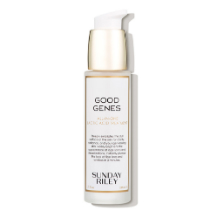
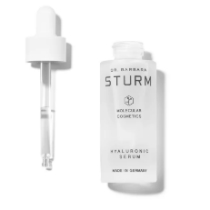

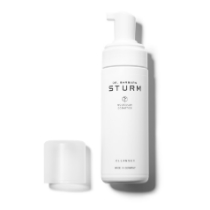
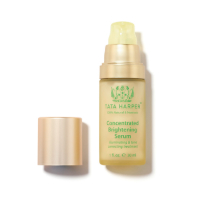
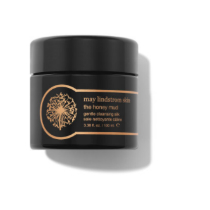
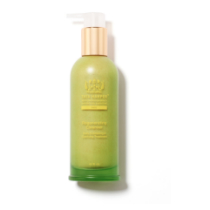
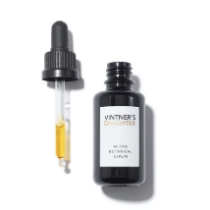
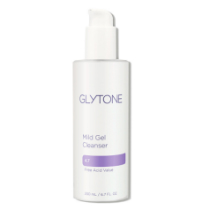
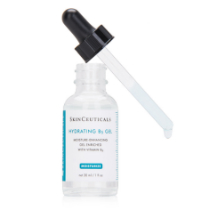
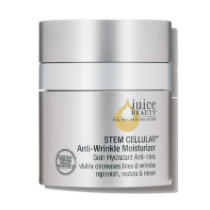

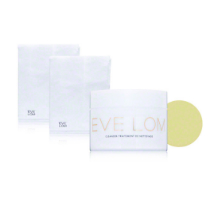
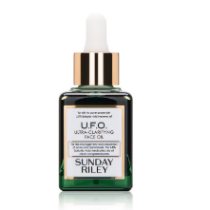
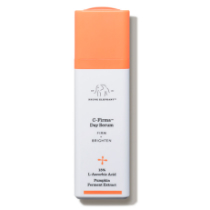






















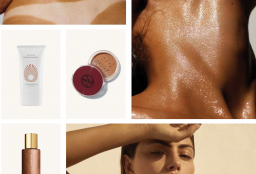


































I’m definitly changing my beauty routine to a more natural and organic formulas! It transforms your skin for the better! :)
http://www.fine-alchemy.blogspot.com
Beyond the very obvious that your interviewees mention, the trend for natural runs parallel to the growing fear that industrial pollution is getting out of hand. And ALL conventional cosmetics, and the vast majority of so called “natural” cosmetics, are part of the problem. They put a little marula oil at the bottom of the INCI list, and rebrand themselves as “natural”. We buy them, because we want to believe (because we’re lazy). Or because guys like you recommend them, and we trust you. But their formulas contain silicones (that’s plastics), paraffin oil, and a batch of synthetic preservatives that will extend their formulas shelf life, just to mention a few of the BAD ingredients that are commonly used. Now, why are they bad? Sure, they might generate dryness, allergies, you name it. More important, and less easily questionable: ALL these invisible tiny bits of synthetics, plastics and preservatives go down the drain with the shower, and migrate into the fish we eat, the rivers, the oceans, and they are killing us, and our natural environment, surely, slowly, and massively. THIS is, I feel, what you guys should be talking about when you discuss “organic” and “natural” in cosmetics, and why it’s important. Natural cosmetics should be COSMETICS THAT DO NOT HAVE A NEGATIVE IMPACT ON THE BIOSPHERE (and still be effective, and safe for use). Very few companies do that, and those who do are generally CERTIFIED organic (“organic” should not be used as a vague marketing buzzword, it has a legal content, and at least in Europe it does). Thanks for reading my rant. I do hope you understand and care.
Paula Begoun. Cosmetics cop. At least she can back up some of the claims. Don’t always believe everything you read and see online etc.. Clinique workers wear white coats. Are they scientists?? Make- up and skin care is basic chemistry. They probably don’t even know how something is formulated or how PH works. Same with the “natural” stuff.
Sehr geil! Hab zwar als Kind nie geschafft eine ganze aufzuschlecken, ohne vorher einen Krampf in der Zunge zu bekommen, aber die Idee ist echt super. Liebe Grüße,Mina
En Europe, il existe un label BIO qui répond à un cahier des charges très strict et précis. Quand un produit cosmétique porte ce label, nous pouvons l’acheter en toute confiance (ce que je fait personnellement depuis des années et ma peau me remercie). Je suis étonnée que ce genre de label n’existe pas aux États-Unis.
Mais, comme l’a parfaitement expliqué Juliet, on n’achète pas BIO uniquement pour soi, pour sa petite personne. Consommer BIO, qu’il s’agisse de cosmétique ou d’alimentation, c’est avant tout encourager le développement du secteur et faire un geste pour la planète. C’est vraiment un acte militant, c’est aussi penser aux autres, aux générations futures.
C’est ça qui est important.
Thank you for this very interesting article! I am trying to slowly change my cosmetic habits and buy more natural and ecological products, but I am sometimes a bit confused about their efficiency. Finding a good bio shampoo is hell, they don’t foam! I ended up realizing in the middle of the day that half my hair was super oily and sticky because my shampoo had not spread well in the morning (and felt like EVERYBODY could see it ahah). So I would love some recommandations about natural shampoo!
I too would be very interested to see what you guys come up with. I’ve been trying a lot of different things on the natural hair spectrum, from the easier (organically certified shampoos that still use milder surfactants, and the result is that they give me dandruffs, like all other shampoos) to the more hardcore solutions (no-poo, cleanses with raw egg or rhassoul… no more itching, zero dandruff, very happy scalp… but my hair becomes super heavy no matter what, and when you have fine long hair, it looks seriously disgusting, so that means permanent ponytail or scarf around my head). So I haven’t found the miracle solution yet.
Really Very Informative Post!!
Thank you For sharing about under the surface Topic i really need this information thank you so much for sharing this Atelierdore :-)